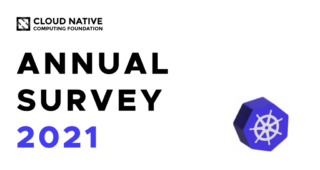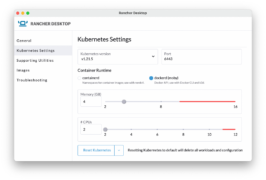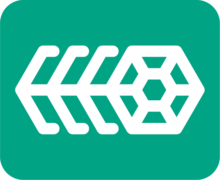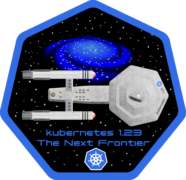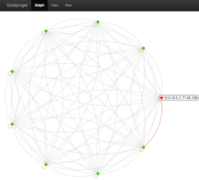Topic: kubernetes
Abstracting complexity from Kubernetes breaks down barrier to entry
Kubernetes is a massive project in the cloud-native space, having grown to 52,000 contributors since its inception, as of a 2020 Cloud Native Computing Foundation report. While interest in Kubernetes continues to grow, one main barrier to its adoption is its complexity. In that same study, complexity was tied with culture changes at 41% as … continue reading
Report: Kubernetes is “crossing the chasm” into mainstream adoption
The Cloud Native Computing Foundation (CNCF) has deemed 2021 as the year Kubernetes “crossed the chasm” into mainstream adoption. This is based on insights from its 2021 Annual Survey, such as the finding that 96% of organizations are using or evaluating Kubernetes. Kubernetes has seen particularly high growth over the past year, and now has … continue reading
Red Hat introduces new data and storage capabilities to OpenShift Platform Plus
Red Hat has announced new additions to OpenShift Platform Plus that will incorporate data services like software-defined storage into the platform. OpenShift Platform Plus is a hybrid cloud platform that provides a multicloud Kubernetes stack out of the box. This is being made possible through an integration with OpenShift Data Foundation, which is a data … continue reading
Rancher Desktop 1.0.0 is now generally available
Rancher Desktop 1.0.0, the open-source app for desktop Kubernetes and container management on Mac, Windows and Linux is now available from SUSE, which acquired Rancher in 2020. Rancher Desktop provides Kubernetes, using the k3s distribution at the version of a user’s choice, which enables users to set up a local Kubernetes environment using the same … continue reading
Mirantis Secure Registry 3.0 can be used alongside any Kubernetes distribution
Mirantis has announced the release of Mirantis Secure Registry 3.0, which now can be used with any Kubernetes distribution. Previously, it could only be deployed by Mirantis Kubernetes Engine. The platform provides a secure software supply chain that companies can use to store, share, and manage images in a private container registry. With the latest … continue reading
ITOps Times Open-Source Project of the Week: Submariner
Submariner is a tool for networking between Pods and Services in Kubernetes clusters. According to the project’s website, as teams continue to adopt Kubernetes, they are discovering that they need to deploy and manage multiple clusters in order to enable capabilities like geo-redundancy, scale, and fault isolation. Submariner was created so that companies could have … continue reading
ITOps Times Open-Source Project of the Week: Harvester
Harvester, created by SUSE, is an open source modern hyperconverged infrastructure solution that is built on a variety of cloud native solutions, such as Kubernetes, Longhorn and Kubevirt. This week, it was made production-ready and generally available for customers and the open-source community. Harvester’s latest integration with SUSE Rancher now allows IT operators to access, … continue reading
Kubernetes 1.23 introduces general availability of IPv4/IPv6 dual-stack networking
The latest version of Kubernetes is now available. Kubernetes 1.23 includes 47 enhancements, 11 of which are stable, 17 of which are in beta, and 19 of which are in alpha. In addition, the release team deprecated a feature in this release. The deprecated feature is FlexVolume, which was used to write volumes into Kubernetes. … continue reading
ITOps Times Open-Source Project of the Week: Istio
Istio is an open source service mesh that simplifies observability, traffic management, security, and policy. It extends Kubernetes to establish a programmable, application-aware network using the Envoy service proxy. Istio 1.12 was recently launched with an improved experience with WebAssembly that allows users to dynamically load custom-built extensions at runtime through an API. The latest … continue reading
ITOps Times Open-Source Project of the Week: Goldpinger
Goldpinger is a networking monitoring tool for Kubernetes that works by making calls between its instances. It runs as a DaemonSet on Kubernetes, which is used to manage groups of replicated pods on Kubernetes. It produces Prometheus metrics that can be scraped, visualised and alerted on. “We built Goldpinger to troubleshoot, visualise and alert on … continue reading
ITOps Times Open-Source Project of the Week: Checkov
Checkov is a static code analysis tool for infrastructure-as-code that scans cloud infrastructure provisioned using Terraform, Terraform plan, Cloudformation, Kubernetes, Dockerfile, Serverless, or ARM Templates. It detects security and compliance misconfigurations using graph-based scanning. The open-source project also powers Bridgecrew, which is platform for codifying and streamlining cloud security throughout the development life cycle. Checkov … continue reading
3 big things to consider with Kubernetes, Kafka, and Elasticsearch on 1,000 nodes
Kubernetes has become the de facto approach to container microservices. It offers extensibility, stability, and insight that doesn’t exist in other open source solutions. It has become a staple in the DevOps toolchain and it shows no signs of slowing down. When companies wish to run Kafka or Elasticsearch, Kubernetes has become the go-to option. … continue reading


